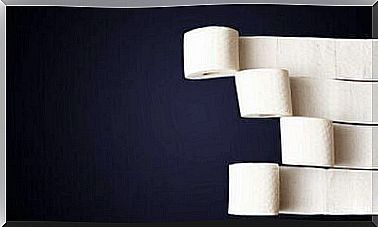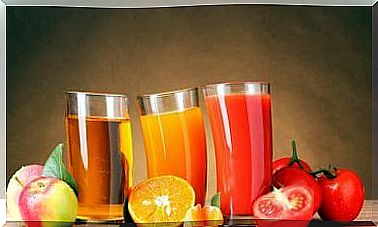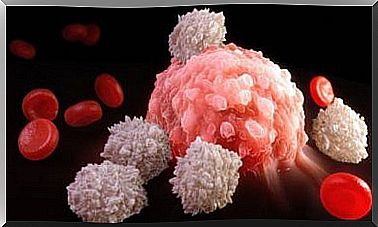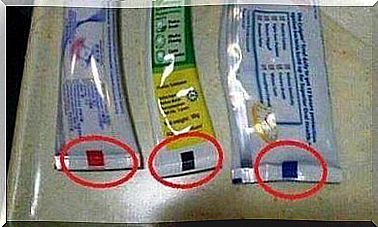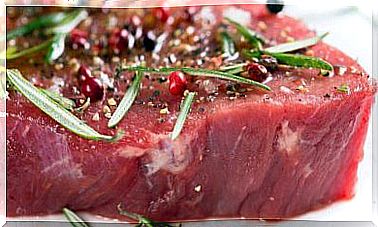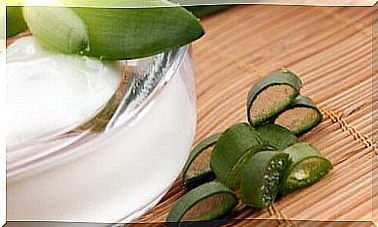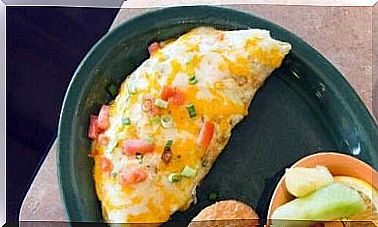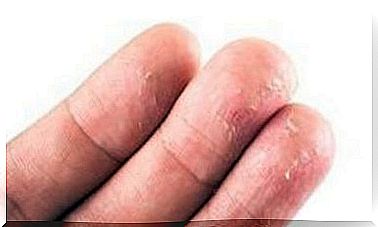Food To Avoid For Fluid Retention
People often think that more fat has been added, but in fact the body cannot process the fluid in the body in a correct way. Some nutrients are therefore better avoided in case of fluid retention.
When do we speak of fluid retention?
We speak of fluid retention when there is an imbalance between the body mechanisms that regulate fluid circulation in the body.
This imbalance causes fluid to accumulate in the body tissues. If you can’t drain the water, it will build up in certain areas of your body.
The main factors that negatively affect the problem are:
- A lot of salt in the diet in the diet
- Poor circulation due to too little exercise
- Hormones Imbalance
- Too little exercise
When you get fluid retention, you can usually easily recognize the symptoms. Your weight will increase and various body parts will be swollen (especially the legs and ankles).
To test whether you really have fluid retention, press the skin for a few seconds. When you remove your finger and you see a white spot for some time, you have edema.
To prevent or reduce this fluid retention, you should limit your salt intake and drink more water and diuretic fluids (juice, vegetables, fruit, etc.). It is also recommended to exercise at least twice a week.
Foods to avoid in case of fluid retention
If you have fluid retention, it is not enough to exercise and consume less salt. In addition to these two things, you should also avoid certain foods, foods that tend to increase the amount of water in your body.
Here are some foods to avoid for fluid retention:
1. Alcoholic drinks
Even though you have to go to the toilet more often when you drink alcohol, a large part of the liquid (and the sugar that contains the alcohol) remains built up in your body.
Alcohol leads to fluid retention in the abdomen and legs. Drinking a glass of wine every day is not a big problem, but drinking cocktails, beer or spirits several times a week certainly is.
2. Cold cuts
Meat products contain a lot of salt. In addition to being high in fat, they also cause fluid retention. Eating a lot of meats can clog the arteries and increase the risk of a heart attack.
Salty cheeses can be counted in the same category. This type of cheese is often served together with cold toppings such as salami, smoked ham and bacon.
3. Snacks
Potato chips and similar products contain a lot of salt to enhance their taste. In addition, they are very addictive products that we can hardly keep away from when they are in front of our noses. You can hardly stop until the whole bowl is empty!
If you still want to eat something small, try eating sunflower seeds, nuts, fruit or vegetables .
4. Refined Sugar
Many products found on the shelves today contain large amounts of sugar or sweeteners. Just like with salt, sugar causes you to retain moisture and thus moisture build-up.
Therefore try to consume less sugar or seek refuge in the more natural alternatives such as stevia, honey or cinnamon to give your food extra taste.
5. White flower
People who eat a lot of pasta, pizza or bread are more likely to suffer from fluid retention and also gain more weight.
Refined flour contains carbohydrates that build up in your body and hinder the functioning of your kidneys. These ingredients keep the fluid in your body and slow down the functioning of the kidneys.
When given the choice, always try to choose whole wheat flour or eat these products in moderation.
6. Highly processed products
Frozen foods and prepared dishes with would be better avoided in case of fluid retention.
Unfortunately, we don’t think about the salt content here when we consume this type of food and forget that salt stimulates fluid retention.
So try to eat more home-cooked meals, cook more often (even if it’s only a few times a week), and avoid highly processed products.
It is not an easy task in times when we are so used to ‘comfort food’, but little by little you will notice that this benefits your health.
7. Foods with extra salt
Don’t use too much salt when you cook and don’t add extra salt when you sit at the table. The best thing is that you just don’t put salt on the table. If you don’t see salt, it’s also easier to resist the temptation.
You can also flavor your food by adding herbs, lemon juice or olive oil. It is healthier and more delicious and you lower the risk of fluid retention and other ailments.
Also read:
Four banana smoothies to combat fluid retention
What should I eat if I have fluid retention?
In addition to avoiding the foods listed above that encourage swelling and fluid retention, we also recommend consuming more of the products below:
- Water (eight to 12 glasses a day)
- Natural sweeteners (stevia, agave)
- Fruits (watermelon, grapefruit)
- Herbal tea (chamomile tea, green tea, mint tea)
